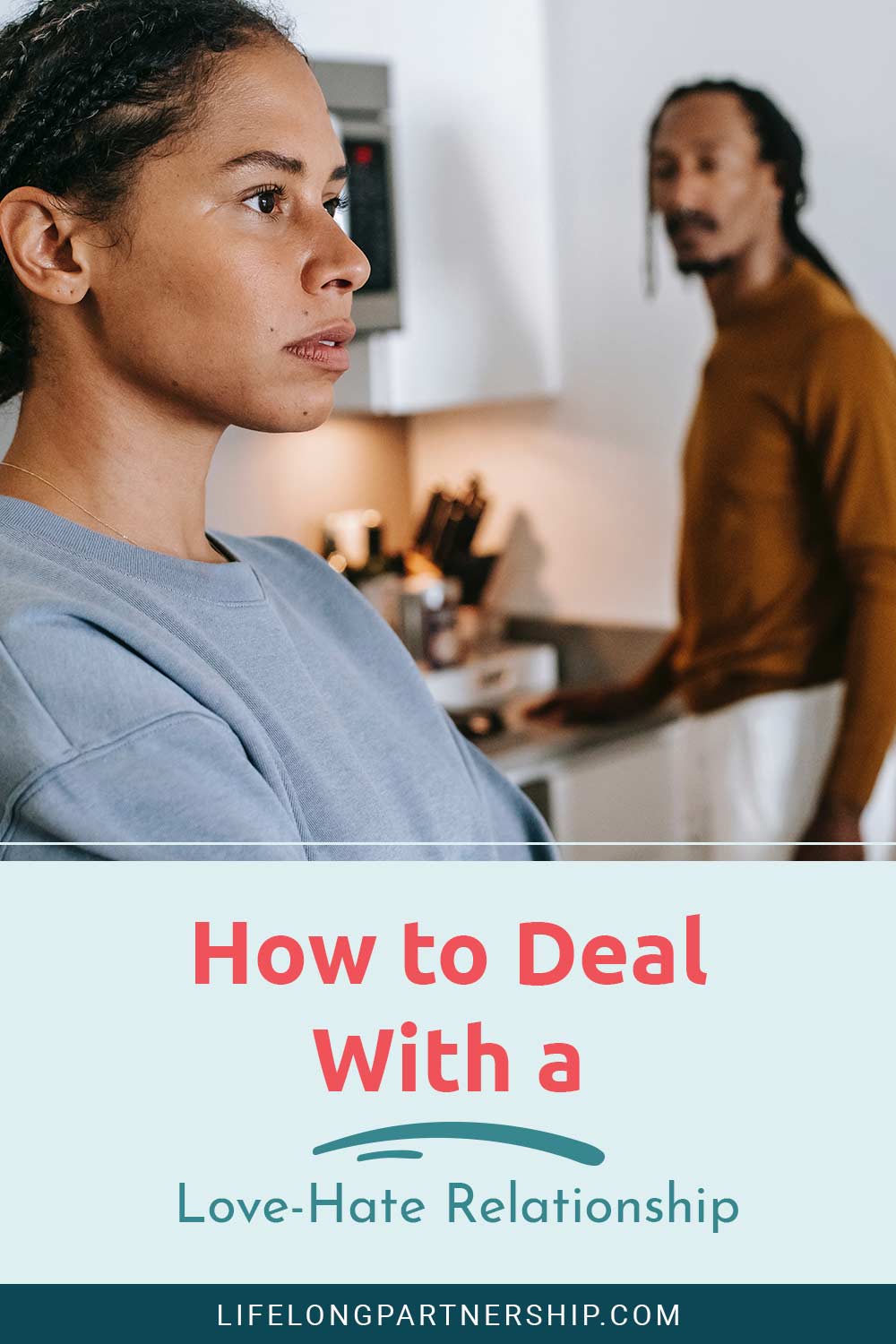Love-hate relationships are something that many people don’t talk about. But, if you’ve ever found yourself in one, you know those relationships are quite unique and often frustrating and exciting together.
However, these types of relationships are more common than you might think, and they can be pretty confusing and overwhelming. Don’t worry. We’ve got you covered.
We will share some tips and tricks on navigating a love-hate relationship and coming out on top. Whether you’re dealing with a romantic partner, friend, or family member, these strategies will help you keep your relationship from driving you completely insane.
So if you’re ready, let’s get started!
What Are the Signs of a Love-Hate Relationship?
So let’s just dive right into what the signs of a love-hate relationship actually are. Here are the biggest signs:
- You have intense and conflicting feelings towards the person. One minute you love them to bits, and the next, you can’t stand the sight of them.
- Predictable. You never know how your conversation with this person will go.
- You can’t seem to let go! Even when the relationship is causing more pain than pleasure, you find it hard to cut ties with the person.
- Your friends and family are concerned. The people close to you might notice that something’s off about the relationship.
- You feel like you’re stuck in a cycle. You might find that you keep repeating the same patterns and issues with the person over and over again.
If you’re experiencing these signs, you may be in a love-hate relationship. But don’t worry. Recognizing the problem is the first step toward finding a solution!
How Common is This?
Believe it or not, love-hate relationships are more common than you might think! So many people experience conflicting emotions toward someone they care about, and it’s not always easy to sort out those feelings.
In fact, love-hate relations can happen in any type of relationship- romantic, familial, or even friendship. So it’s not always a clear-cut case of love or hate but a complex mix of both. It’s also worth noting that love-hate relationships aren’t always healthy.
While a certain amount of conflict and tension is normal in any relationship, it might be time to reassess if the love-hate dynamic is dominating the relationship and causing more harm than good.
What Can You Do About it?
Now we have established what a love-hate relationship is and how common it is. Let’s talk about what you can do if you’re stuck in one. Here are some tips to help you navigate a love-hate relationship:
- Take a step back and try to figure out what’s causing the love-hate dynamic. Is it a specific behavior action that triggers negative feelings? Once you identify the source of the conflict, she can work on addressing it.
- It’s important to have honest conversations about how you’re feeling with the other person. Express your concern and frustrations in a respectful manner and try to listen to their perspective as well.
- If the relationship is becoming toxic, it might be necessary to set some boundaries. This could be limiting contact with the person or taking a break from the relationship altogether.
How Can You Fix it?
If you want to fix a love-hate relationship, you’re going to have quite a big challenge. But it’s not impossible! Along with the three suggestions above, we have three more tips that may help you rejuvenate and renovate your love-hate relationship.
If the relationship is particularly challenging, it might be helpful to seek outside help. A counselor or therapist can help you work through the issues and provide you with tools and strategies to improve the relationship.
Self-care, like in every aspect of your life, is vitally important. Ensure you’re taking care of your physical and mental health and engaging in activities that bring you joy and relaxation.
Should You End it?
Deciding whether or not to end a love-hate relationship can be a tough call, and there’s no one-size-fits-all answer. However, some things you might need to consider could lead to you deciding it’s time to walk away.
If the negative outweighs the positive in this relationship, you don’t want to live with all that tension and stress. On top of that, if there’s a lack of respect and trust or your needs aren’t being met, it’s time to step back and put yourself first.
It’ll be best for you both physically, mentally, and emotionally as well as the partner in the relationship.
Final Thoughts on How to Deal With a Love-Hate Relationship
Loving relationships can be complex and challenging to navigate. It’s important to recognize the signs of a love-hate dynamic and take steps to address the issues. Remember to prioritize your happiness and well-being, and don’t be afraid to seek outside help if needed.
By working on the relationship or making the tough decision to end it, you can move towards a healthier and more positive future.

